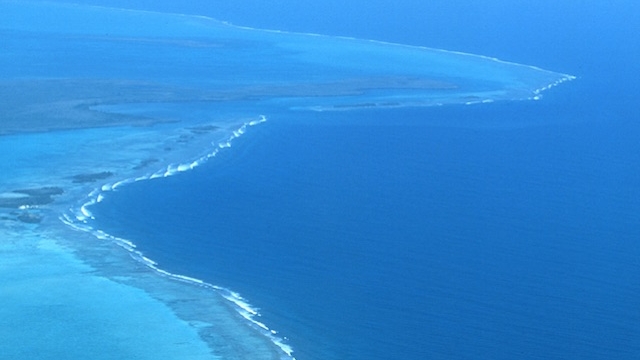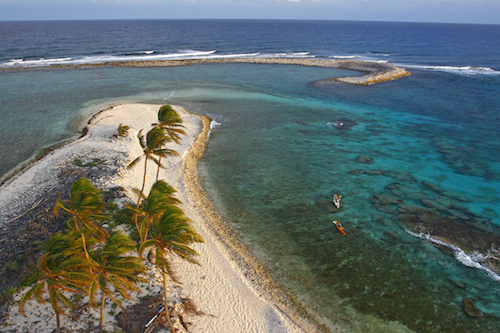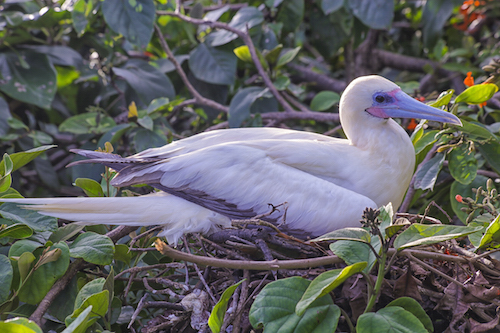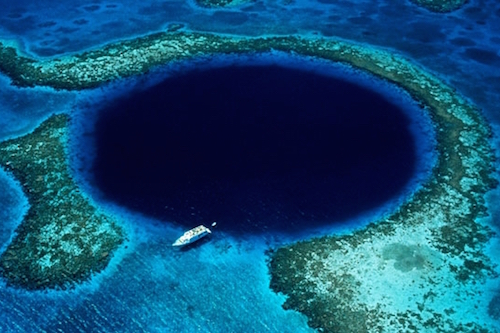
We wanted to share some highlights and interesting facts about the Belize Barrier Reef System. Many of our reef adventures spend time exploring this very special part of Belize.
The Belize Barrier Reef System is best experienced close to the water whilst paddling a sea kayak, SUP or snorkeling. As you glide along the surface you may encounter a shadow of a spotted eagle ray passing under the surface or a soaring frigate bird overhead, while the surf crashes in the distance.
Size & Scope
The Belize Barrier Reef System is approximately 300km long and straddles the coast of Belize, roughly 300 meters offshore in the north and 40 kilometers in the south. It is part of the Mesoamerican Barrier Reef, the second largest reef system in the world after the Great Barrier Reef in Australia.
A UNESCO World Heritage Site
The Belize Barrier Reef Reserve System was inscribed as a UNESCO World Heritage Site in 1996.
It is comprised of seven designated protected marine reserves; Bacalar Chico National Park and Marine Reserve, Blue Hole Natural Monument, Half Moon Caye Natural Monument, South Water Caye Marine Reserve, Glover’s Reef Marine Reserve, Laughing Bird Caye National Park and Sapodilla Cayes Marine Reserve.
It also boasts three distinct atolls: Turneffe Atoll, Glover's Reef and Lighthouse Reef. Coral atolls are very rare outside of the Pacific Ocean.

Half Moon Caye on the Lighthouse Reef Atoll
The First Visitors
The Belize Barrier Reef has attracted people for thousands of years for both its natural beauty and resources. There is evidence that shows the Mayan civilization fished from the reef and traded near it from approximately 300 BCE to 900 CE. In the 17th century, European pirates visited the reef. In 1842, Charles Darwin described the Belize Barrier Reef as the "most remarkable reef in the West Indies."
Important Habitat
The Belize Barrier Reef provides important habitat for a number of threatened marine species including the West Indian manatee, green turtle hawksbill turtle, loggerhead turtle and the American crocodile. It is also important habitat for endemic and migratory birds, which reproduce in the littoral forests of cayes, atolls and coastal areas.
Major bird colonies include the red-footed booby on Half-Moon Caye (walking distance from our Adventure Basecamp), brown booby on Man O’War Caye and the common noddy on Glover’s Reef.
Research has found that approximately 247 types of marine flora have been identified within the complex and over 500 fish, 65 sceleritian coral, 45 hydroid and 350 mollusc species, in addition to a great diversity of sponges, marine worms and crustaceans.

A Red Footed Booby
The Great Blue Hole
One of the most famous and magnificent features of the Belize Barrier Reef is the Great Blue Hole. Located about fifty miles from the coast of Belize, this underwater sinkhole is approximately 1000 feet across and 400 feet deep. In 1971, famed Frenchmen Jacques Cousteau explored the Blue Hole and claimed that it is one of the best spots in the world to scuba dive and snorkel. Guests staying at our Lighthouse Reef Basecamp on Half Moon Caye snorkel and kayak around the Blue Hole on a day trip.

Aerial view of the Great Blue Hole. Image by Schafer & Hill / Getty Images